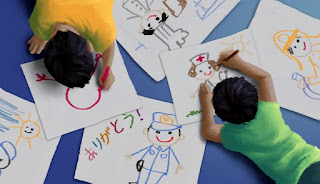みなさん、 こんにちは!Now that we're halfway through the semester, it's time to re-evaluate my goals for Japanese learning. I posted earlier that I wanted to learn ひらがな and カタカナ as soon as possible - mission accomplished! Now it's just all about かんじ, and I'm making good progress using WaniKani to help me study. My progress in speaking is a little bit harder to gauge: 1. Fluid speech - I want to sound as much like a native speaker as possible. This is difficult when we are learning the formal register of the Tokyo dialect first, but that doesn't mean I can't work on fluidity and speaking speed. I have gone to a couple language tables, but I have decided that I want to go once a week from now on so that I can improve my speed and ease of conversation. 2. Rhythm and intonation - It's one thing to sound "fluid" in my opinion, and another for a native speaker to think I sound right. I want to improve my rhythm and intonation by shadowing a full scene from an

